Page 56 • (634 results in 0.05 seconds)
-

In the face of massive environmental change, many people may feel that there is nothing much that can be done. But environmental scholars like Dr. Sarah Robinson-Bertoni are striving to challenge people to take action and not lose hope. Robinson-Bertoni is a visiting assistant professor…
-Bertoni is a visiting assistant professor here at PLU in the departments of Religion and Environmental Studies. She is originally from Oakland, California, and has had a passion for helping the environment from a young age. During her Senior year of high school, Robinson-Bertoni had the opportunity to take courses at the University of California, Berkeley, and she chose to first take an environmental studies class. From there, she went on to get her Bachelor of Arts degree at Berkeley in American
-
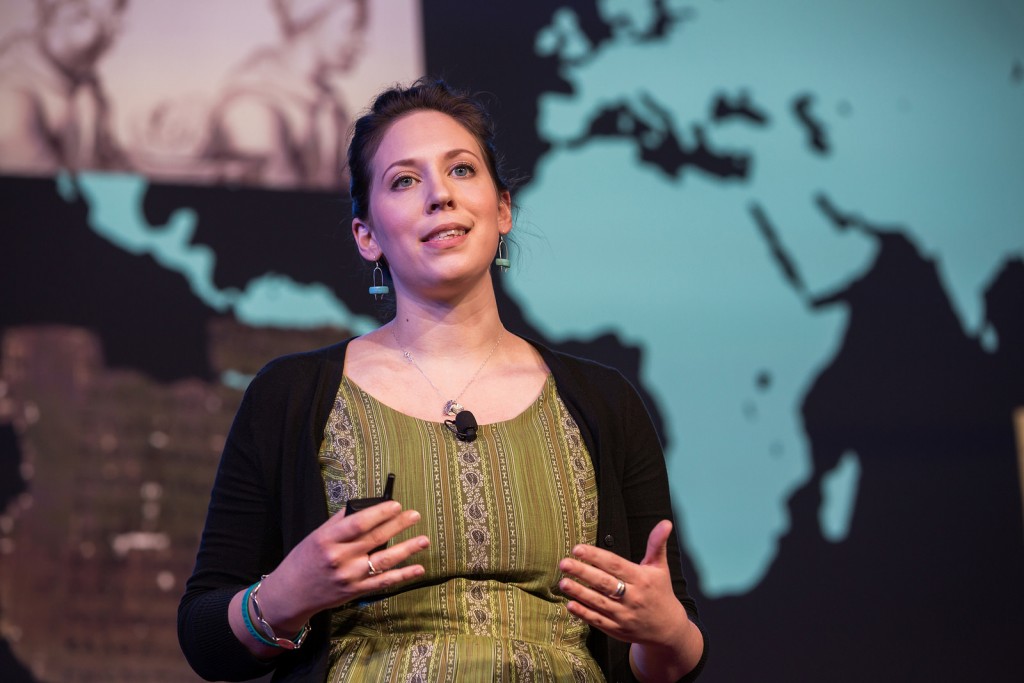
A National Honor for ‘Digging into Cancer’ ‘Fast Company’ magazine names Hunt one of its 100 Most Creative People of 2014 . A Survivor in the Global Spotlight Katie Hunt ’11 fought cancer at PLU, leads the emerging field of paleo-oncology and wowed the crowd…
university but briefly changed course when she was told her dreams were silly. As a result, she dipped into the Classics sphere. Next, Hunt decided to test the viability of her dreams in Egypt, where she attended The American University in Cairo and went on her very first archaeological dig, with Donald Redford—a friend of PLU Professor Don Ryan. Hunt ran into Ryan at an archaeology conference in 2008 and happened to mention she was available if, you know, he needed help with any of his digs. Hunt said
-

Meet Isaiah Banken, a ’21 graduate who set his sights on a career in medicine. With a B.S. in biology and a minor in mathematics from PLU, Isaiah began exploring diverse medical opportunities near his hometown of Wenatchee, WA. From being a compassionate force in…
following year while working as a ski patroller and volunteering in various capacities, including as a backup medic at Holden Village. After finding out that I got into the University of Washington School of Medicine, I traveled extensively before starting school in July of this year.What are some of your fondest memories from PLU?IB: I was on the PLU Men’s rowing team for three years. The sunrises and the foggy mornings on American Lake are very memorable. Other moments like running on the golf course
-
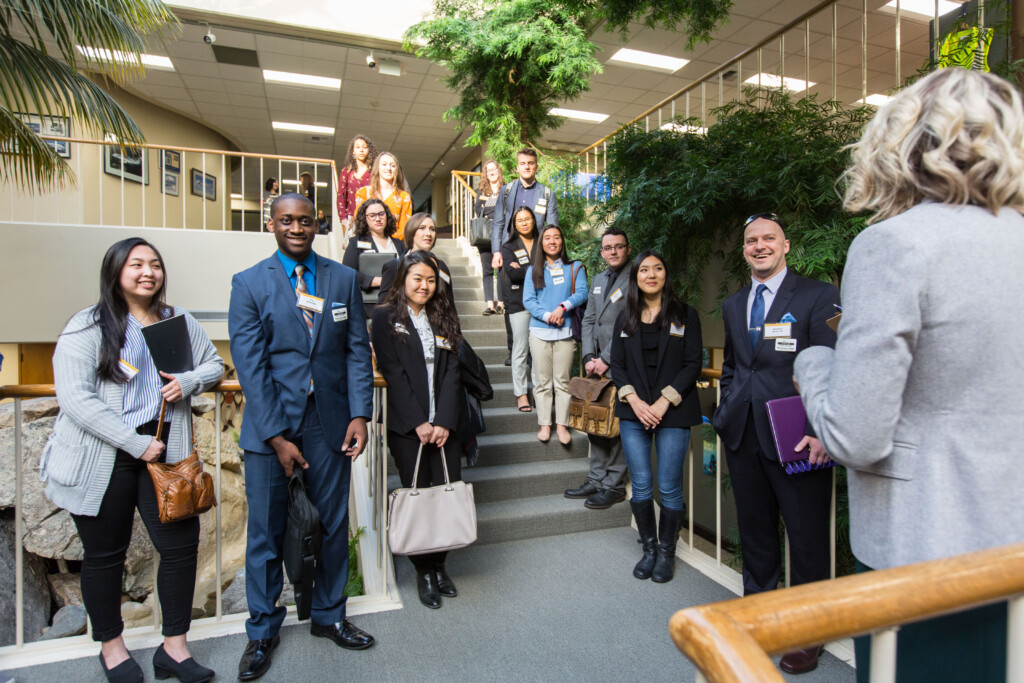
Do you keep getting the question, “What’s your major going to be in college?” which is essentially a different version of “What are you going to be when you grow up?” Or maybe it’s this question: “What do you do with that major?” Perhaps you…
receive one-on-one career and internship guidance from seasoned alumni in your field of interest. Here are the three programs we’re offering this year: The College of Liberal Studies mentoring program is tailored for students in a diverse range of majors and minors, such as Anthropology, Chinese Studies, Criminal Justice, Economics, English, Gender, Sexuality, & Race Studies, Global Studies, History, Holocaust & Genocide Studies, Language & Literatures, Native American & Indigenous Studies, Philosophy
-
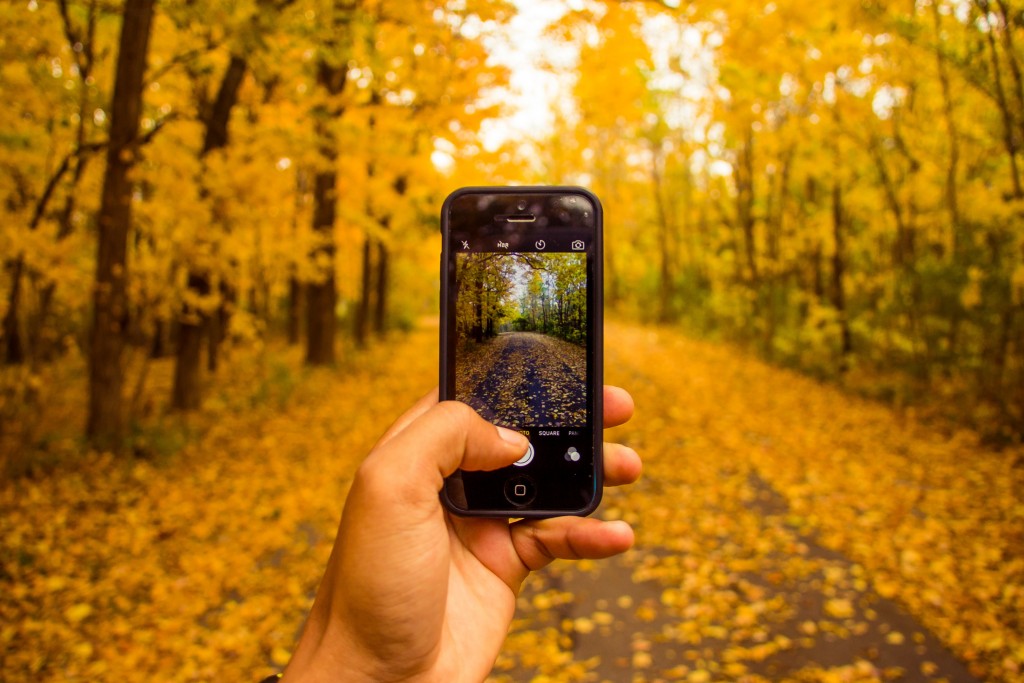
by Damian Alessandro. The scope of human history is vast, encompassing everything that has happened in past societies. However, when most students think about history, they usually focus on the dates and events that have been highlighted in textbooks. These events tend to include social…
, and making public presentations of my work for peers and community members. I love the content, from European history to American history to Asian history. Right now, I am completing my capstone project on the contributing roles of travel, technology, and business in the travel industry in contemporary China since the Cultural Revolution. Damian Alessandro Something that is great about History is its flexibility as a major. The PLU program requires just 36 credits (or nine classes). This gives
-
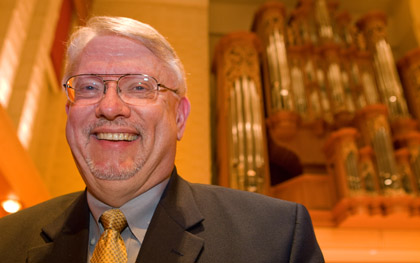
By David Robbins It all started so simply, yet signs were there. In the spring and summer of 1969, I was looking for my first college teaching job as I completed my graduate music degree at the University of Michigan. Like so many seeking their…
decades. The 1980s saw the emergence of study away as an important PLU facet. The Rieke Science Center was completed, faculty governance grew stronger and recruitment of new students became increasingly focused. Academic programs grew stronger and new programs were undertaken. At the end of the decade, the university celebrated its centennial, with a year long celebration that included the world premiere of my colleague Gregory Youtz’s opera on Northwest Native American history and simultaneous
-
Nurses tell of worldwide travels during panel They’ve traveled to the far corners of the globe: Liberia, Iraq, Vietnam and Colombia. They’ve seen desperate poverty, bombed out buildings, and quite frankly, incompetent medical care. However, the four nurses, all PLU alumni who returned to talk…
at a street market than out of a catalogue, where prices were jacked up by 300 percent. Her staff were “voracious” learners, and quickly trained up. But she often found that doctors and nurses went right from the American equivalent of high school, straight into a specialty for the next six years. There was very little general medical or science training. There were also the cultural differences. Doctors were expected to take one look at a patient, and know instantly what was wrong. To simply say
-

Finding a special place at PLU By David Robbins It all started so simply, yet signs were there. In the spring and summer of 1969, I was looking for my first college teaching job as I completed my graduate music degree at the University of…
decades. The 1980s saw the emergence of study away as an important PLU facet. The Rieke Science Center was completed, faculty governance grew stronger and recruitment of new students became increasingly focused. Academic programs grew stronger and new programs were undertaken. At the end of the decade, the university celebrated its centennial, with a year long celebration that included the world premiere of my colleague Gregory Youtz’s opera on Northwest Native American history and simultaneous
-
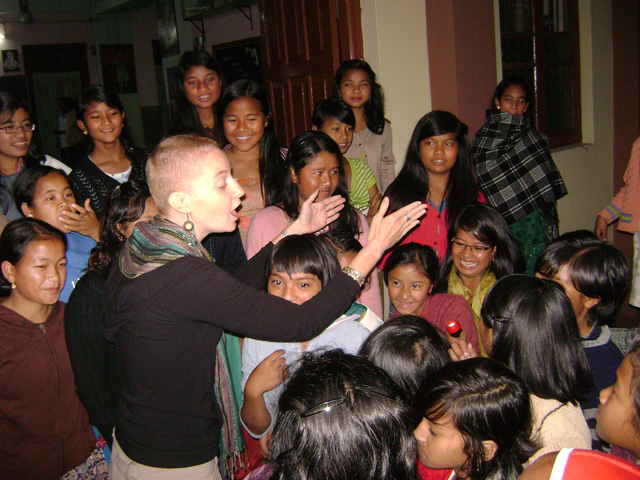
Karissa Bryant ’03 with school girl at Sacred Heart Boarding School in Shillong, India. Here Bryant is asking the girls who live at the school what they wanted to be when they grew up. In the evening they would share Khasi songs with Bryant and…
students at BCC, ranging from 15 to 28 years of age, and far from “ordinary students” by American educational standards. “I was teaching them ‘conversational English,’” Bryant recalled. “Some students were almost fluent and some couldn’t understand anything at all.” The center has been successful and helped students reach a better future for themselves and their families, but it’s not enough, said Bryant. There are already many more students than the sisters can hold in their bare, makeshift classroom
-

On a visit to a U.S.-funded mine-risk education seminar in Kayah State, Jerry White stands with fellow landmine survivors. U.S.-supported mine-risk education in Burma can serve as a platform to build trust between these armed groups, the military and the Burmese government. Photo courtesy of…
& Communications Jerry White remembers sitting in his wheelchair in an Israeli hospital, looking at his nurse. When he found her, she just stared back, without sympathy, making no effort to help the 20-year-old American who had just had his right leg blown off by a landmine the week before. “I expected them to help me, but the nurses just stared back,” remembers White, now working for the U.S. State Department as a Deputy Assistant Secretary of the Bureau of Conflict and Stabilization. “They told me to get my
Do you have any feedback for us? If so, feel free to use our Feedback Form.


